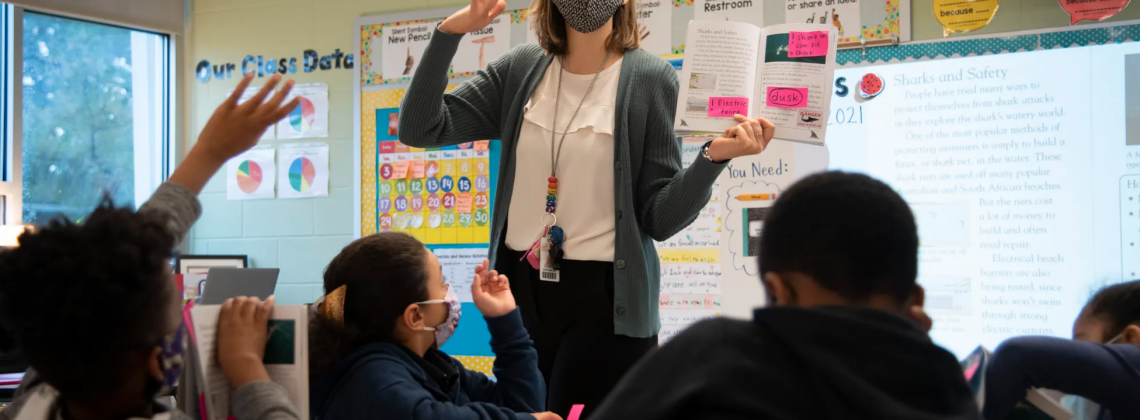

Making the “sacred cause of liberty” a little less sacred might get us somewhere
The Woke Wars continue to rage across state legislatures, yet it is not too soon to move from taking sides to taking stock. Education bills outlining the correct teaching of American history offend the American ideal of free debate that both sides of the Woke Wars claim to defend.
I myself would not place too much hope in the prospect of some future consensus based on the classic American ideal of “the free marketplace of ideas.” In the current context, the metaphor is more symptom than antidote. The marketplace of ideas is no more “free” than any other marketplace. The government has always “picked winners,” if only by passing the particular laws that establish the mythical “level playing field.” Angry parents in states such as my own Virginia have recently discovered that the playing field is not level, that the education establishment has in effect started at the finish line and expected the other runners to accept its victory. Rebelling against this reality, conservatives have responded with legislation that could easily be confused with anti-blasphemy laws. Perhaps this is only appropriate, for their left/liberal opponents routinely speak of the issue at stake—slavery—as America’s “original sin.”
The religious character of this debate is less a battle between rival faiths than an internal struggle among rival orthodoxies, each accusing the other side of heresy. This is exactly the kind of debate that American public life is distinctly, and constitutionally, ill-equipped to accommodate. The disestablishment clause of the First Amendment reflects a range of universal principles and practical realities. It is not entirely clear how the Founders imagined the nature of public debate in the new republic. The Founders looked to the pagan classics for models of public oratory yet largely rejected the aristocratic-warrior ethos that inspired the most compelling political debates of the ancient world. Jefferson’s quip about “the government that governs best governs least” suggests that in his mind there would not be much need for rigorous debate, that nature would guide all to order. The Founders certainly never imagined public debates sinking to the level of religious controversy; they generally hoped that a natural moral consensus would fill the void left by the lack of an established church.
Nations do not live by nature alone, it turns out. In place of the public cults that bound together the republics of the ancient world, revolutionary America substituted the “sacred cause of liberty.” This new public cult was at first notoriously thin on doctrine and ritual. The doctrine got thicker in the debate over the issue that animates much of today’s Woke Wars, slavery. The Missouri Compromise and the Compromise of 1850 sought to reduce this debate to the moral equivalent of an infrastructure bill, but they could not stave off the deeper debate over the nature of human freedom that lay just below the surface of the political horse-trading. That deeper issue came to the surface in the famous Lincoln-Douglas debates of 1858, still the gold standard of political oratory in American history. Lincoln lost his senatorial electoral battle, eventually won the war against slavery, and paid for this with assassination at the hands of his defeated enemies. A century later, when America returned to the unfinished business of the Civil War, those with the power to do so once again imposed their orthodoxy on an unwilling minority and once again faced stiff, even violent resistance. None of this bodes well for the kind of political debate called for by today’s Woke Wars.
If this is how grown men settle their differences, are we seriously to expect something more from school children? The public school has historically been committed to the sacred cause of liberty and, simultaneously, no more successful than our political institutions at fostering rigorous and fruitful debate over the meaning of liberty. The founders of the public school system in the North leaned abolitionist, or at the very least anti-slavery (in the Whig-Republican tradition). Still, as politicians debated the future of chattel slavery, school reformers set their sights on a much older enemy of liberty: the Catholic Church. America’s contentious range of Protestant denominations found one clear point of agreement: the Catholic Church was the historic root of all religious, intellectual, and social slavery. That Catholics refused to comply with the requirement of Protestant Bible reading in formally “non-sectarian” public schools only confirmed this traditional belief. No educator thought that schools should become forums for debating the relative merits of Protestant and Catholic intellectual traditions. Given the ultimatum to submit or leave, the clerical leaders of the Church in the nineteenth century chose the latter and established a separate school system.
That separate system educated me from K-12. I am tempted to see it as a solution to today’s Woke Wars—minus the infidel tax of having to support public education along with private schools rooted in particular traditions. Still, history provides ample cautionary tales of the limits of Catholic separatism. From the start, Catholic school leaders were committed to burning incense to the sacred cause of liberty. They accepted the public school understanding of education as citizenship training. Beyond merely teaching the rules of American politics, education was to instill patriotism. As recent events at my old Catholic high school have shown, this has remained a goal of Catholic education long after the Church shed the stigma of foreignness it bore during the era of mass immigration. I am often reminded by my fellow Catholics that the universal catechism explicitly identifies patriotism as a virtue, but it is hard for me to see how a country as large and diverse as the United States qualifies as anything like a “patria” in the traditional meaning of that word. Why should Catholic children say the pledge of allegiance in a Catholic school the state merely tolerates?
American citizens no doubt share a common history, a source of legitimate pride (World War II) and deserved shame (yes, slavery). Still, in the end, these are achievements of a social contract, not a patria. The nation-state simply cannot provide anything close to the knowable community essential to meaningful patriotism. Perhaps public life might be more civil if we expected less from it, if we treated America like a social contract rather than a patria. Public life could then turn from the futile task of fostering a common faith to establishing the conditions for the flourishing of communities of distinct traditions, religious or secular.
This would involve first of all the abandonment of the public school as a factory of citizenship. The sciences still command enough assent to merit commitment to some modified form of public education, but the humanities have proved themselves as contentious as the old religious denominations and should be taught within institutions controlled by various traditions. Positive interaction among communities can only come in the contexts of the kind of personal knowledge that comes from proximity. We may live in different neighborhoods and go to different schools, but we all need common roads—and bridges.
Christopher Shannon is associate professor of history at Christendom College in Front Royal, Virginia. He is the author of several works on U.S. cultural history and American Catholic history, including the forthcoming American Pilgrimage: A Historical Journey Through Catholic Life in a New World, due this spring from Ignatius Press.